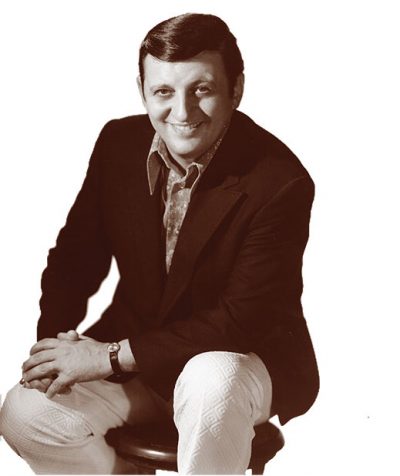
Michael John Roselli, better known as Jimmy Roselli, was born 10 years after Frank Sinatra and lived one block away, at 514 Monroe Street in Hoboken. Both men were singers, although their careers took different turns.
Roselli’s paternal grandfather taught him the Neapolitan dialect of Italian; it was Roselli’s first language. The family was poor, and Roselli endured a rough-and-tumble street life—the upbringing Sinatra claimed but never experienced. “I had to make all my own decisions,” Roselli once said. “That’s embedded in me from birth.”
As a youngster, Roselli earned his keep as a shoeshine boy and messenger. His first singing gig at Meyers Hotel in Hoboken came at age 10. A few years later, Roselli was singing on a Hoboken street corner when Sinatra stopped to listen. As Roselli told the story, Sinatra put him through his paces singing the scales. “He [Sinatra] was amazed at my two-octave range,” Roselli recalled. “He said, ‘Christ, listen to this kid.’ I never heard from him no more after that.”
Roselli achieved moderate success as a singer, but was handicapped by his own intransigence. The song “My Way,” which became Sinatra’s signature, was probably more representative of Roselli’s stubbornness. He once turned down national exposure on the Johnny Carson show because the pay ($450, union scale) wasn’t high enough.
Ultimately, Roselli found a niche by singing in Neapolitan. He never approached Sinatra’s success, though some considered Roselli the better singer. “[Jimmy Roselli] has a larger, richer voice than Frank Sinatra,” songwriter Sammy Cahn once said. “He’s a miracle.”
Sinatra’s indifference toward Roselli turned to enmity in 1969 after Roselli refused a Dolly Sinatra request to do a benefit concert. Suddenly, Roselli found his recordings banned from WNEW radio and pulled from jukeboxes—a boycott he partially blamed on Sinatra. Before his death in June 2011, Roselli obtained some measure of revenge. Some accounts claim he drew larger crowds than Sinatra in places like Atlantic City and the Copacabana in New York; occasionally, he was even paid more than his famous former neighbor. For Roselli, the real measure was money.
